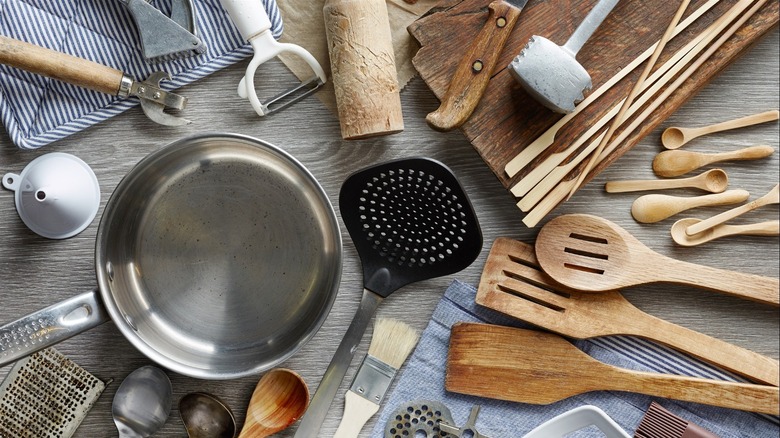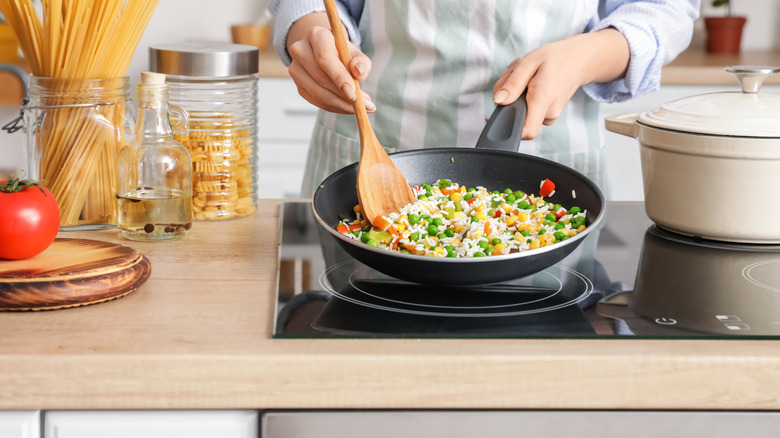When You Should Be Throwing Away Your Wooden Cooking Tools
There are a lot of silly kitchen tools out there, but some, like spoons and spatulas, are absolutely essential. When buying cooking spoons and utensils, you have a lot of different options. You can generally find sets made of stainless steel, silicone, nylon, and wood. Each material has its own set of pros and cons. For example, silicone cooking tools are a great, affordable option, but they may not be the best fit for all your cooking needs, advises Serious Eats. Attempting to use a silicone spatula to flip a pancake, for instance, can be an exercise in patience and perseverance due to their bendable nature.
Stainless steel options are rigid but can be abrasive on pots and pans. According to Eat This, Not That!, stainless steel cooking utensils are too sharp for nonstick pans. The sharp edges can chip and degrade the coating, leading to flaking. Wooden spoons are aesthetically pleasing, are gentle on pots and pans, and are easy to find, but they have a limited shelf life. There comes a point when all wooden spoons should be thrown out, but there is a way to make them last a lot longer.
It is time to toss wooden cooking utensils when visible cracks form
It's happened to all of us before. You pull out a wooden spoon to stir something on the stove and notice a crack. While it is tempting to continue with your preferred utensil despite the split, it's not a great idea. According to Southern Living, you know it's time to toss your beloved wooden spoons when cracks appear on the surface.
According to the source, while wooden utensils are safe to use while cooking, they are no longer considered safe when cracks form on the surface. Cracks, even tiny ones, are harbingers of bacteria growth. These types of utensils commonly splinter because wood expands and shrinks based on ambient temperature and humidity.
You can extend the life of wooden cooking utensils and cutting boards by giving them a little extra care. According to Martha Stewart, handwashing and an oil rub can keep wooden spoons in mint condition for longer. According to the source, the true enemy of wooden spoons is moisture and heat. Instead of allowing wooden cooking tools to soak in water, you should handwash them with mild dish soap and then hand dry them with a towel. High heat is also problematic, so the dishwasher is off-limits. Gentle washing could be enough to extend the life of wooden spoons and cutting boards, but if you'd like to make them last even longer, a rub with mineral oil once every 30 days or so can extend their life further. While there are plenty of mineral oil options on the market, only oils labeled as food safe should be used.

